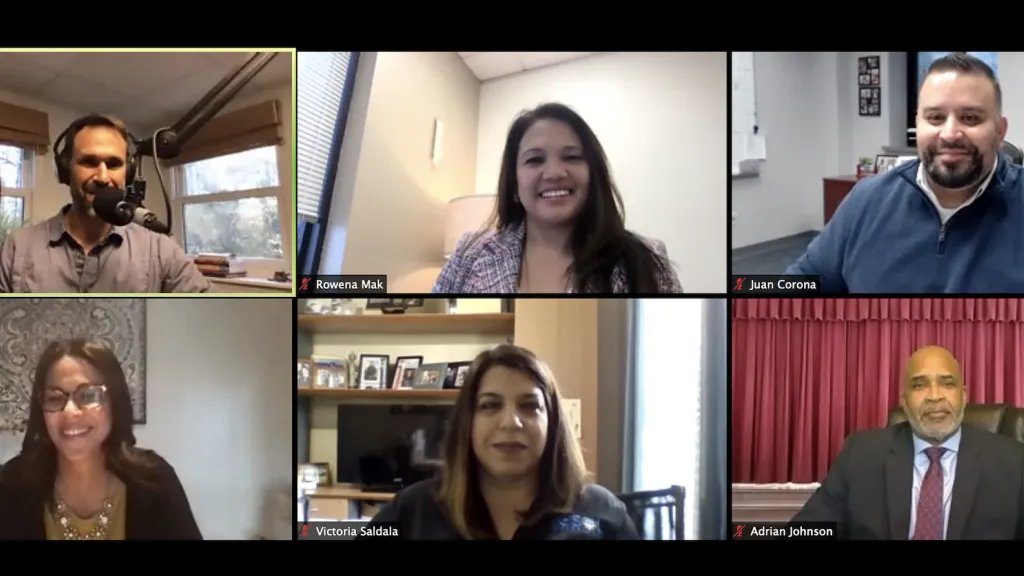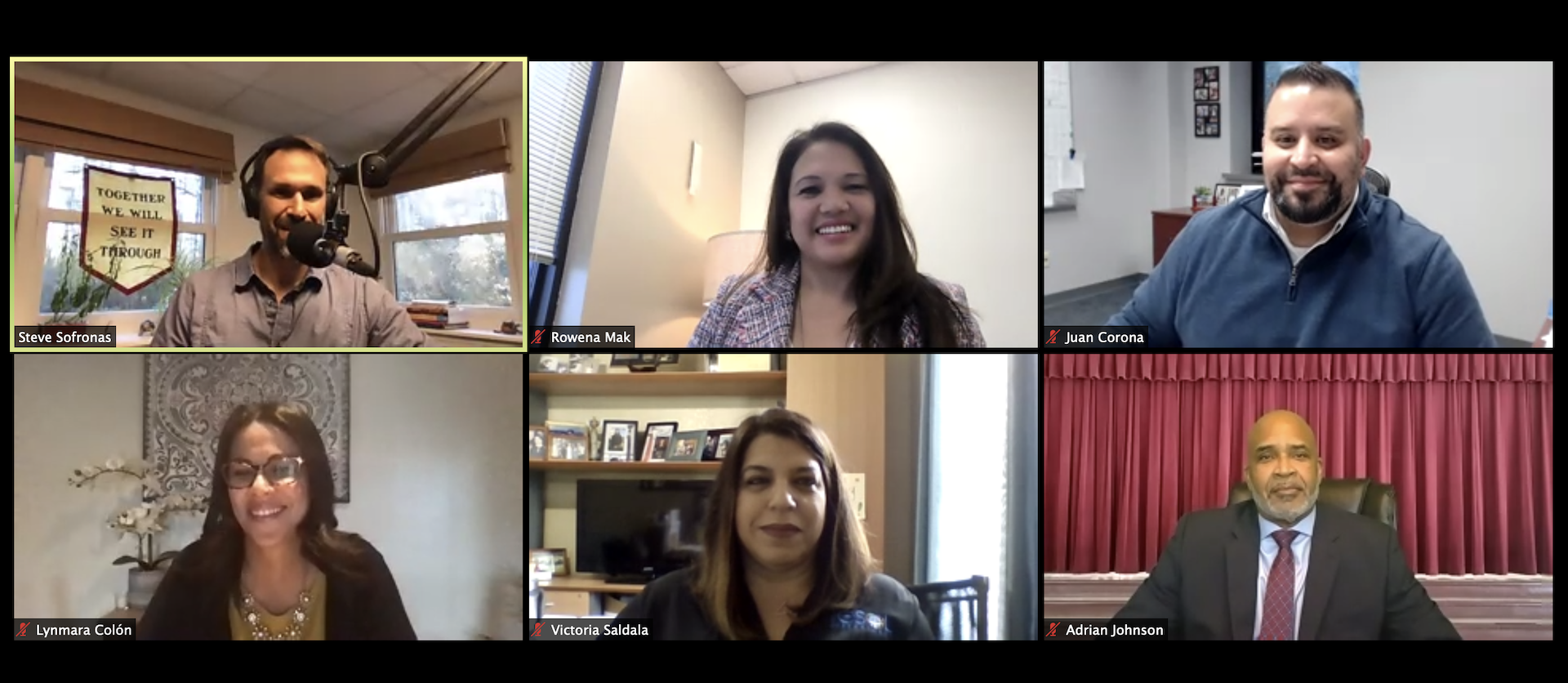EL Impact Conference: Celebrate the Messy


EL Impact Conference: Celebrate the Messy
In early November, Ellevation hosted our first-ever EL Impact Conference, bringing together over 2,000 educators from school districts across the country for a week-long professional learning seminar. EL Impact provided participants the opportunity to learn from leading experts in the field, and their peers, about new approaches and strategies to meet the challenges of remote and hybrid learning instruction. Coming in the midst of a pandemic, when so many of us have been confined to our homes, it was a joy to connect again with ESL/Bilingual colleagues in our field.

In a year that many of us would describe as “messy,” it was a privilege to hear leading academic authorities in our field remind us of the beautifully messy process that is language learning. It was a message, grounded in research, that provided a timely bit of inspiration to those of us worried about the impact of COVID disruptions on our multilingual students. Some of my favorite highlights included:
- Dr. Tim Boals’ comments reminded us that learning academic language requires a tolerance for imprecise, spontaneous, “dialogic” conversations that create opportunities for meaning making. “When we get too hung up on correctness, we send the message to kids that they don’t belong and won’t ever catch up.” In other words, messiness is OK - even desirable.
- Dr. Gretchen Oliver and Dr. Karen Gregory from Clarkson University shared some very practical tips and tools that support this kind of messy, spontaneous language in a virtual context. It takes intentionality, but “we can create those spaces where dialogue is valuable.” Take a look at their fabulous framework for supporting interpersonal language online, and stick a printout on your wall.
- Dr. Jeff Zwiers led a great workshop imploring educators to push kids beyond “play-acting school” and make sure that they engage in a more rigorous learning experience. “We want them to stop saying “how many paragraphs do I have to write for this lesson, and start saying “how many paragraphs do I need to fully convey my ideas?” Pushing these boundaries may make students uncomfortable, but the productive struggle is what drives progress and proficiency.
- Sandra Medrano-Arroyo, Instructional Content Specialist at Ellevation, shared some of her best practices for ensuring how biliteracy and cultural competency must be an essential component of Dual-Language programs. She emphasized how “Spanish and English share over 20,000 cognates...Spanish speaking students come to our classrooms with these underlying assets. They just need to be exposed to the English version of the words.”
- John Seidlitz led a session focused on how we can ensure the integration of Social-Emotional Learning into our instruction during remote learning. His helpful reminders of the challenges faced by all of us in this difficult learning environment was reinforced in his reflection that "One of the things we have to remember with Socio-Emotional Learning is that it starts with strengthening us. Our kids pick it up from us. When we show listening culture and respect and saying how we feel, our students are able to do that as well."
Perhaps my favorite part of the conference was the roundtable discussion with our “In This Together” district partners, who showcased the incredible resolve and commitment that make them great leaders in their schools and communities. Despite the challenges faced this year, the theme of commitment and continuous learning was on display throughout the discussion, embodied by panel participant Rowena Mak from Saddleback Unified School District in Southern California, who said “[we look forward to having] more conversations where we embrace failure and where we are vulnerable. Where we can learn from our failures and grow from there.” As they shared stories of multilinguals in their districts, for whom messy setbacks are part of the normal course of language acquisition, I took great pride and comfort in their stories and reflections. We are so fortunate to serve these educator-heroes.
We often talk about celebrating the linguistic and cultural assets that ELs and multilinguals bring to our classrooms. As we come to the end of a difficult year, when many of us are overwhelmed by the disorder and uncertainty in our own lives, let me celebrate another overlooked asset that millions of English Learners model for us every day: resilience. Their language journey towards proficiency is rarely linear, and academic mastery in another language is often challenging. You might even say it is a bit messy. Yet they succeed, every day, and inspire us by their example.
Happy Holidays and Feliz Año Nuevo.